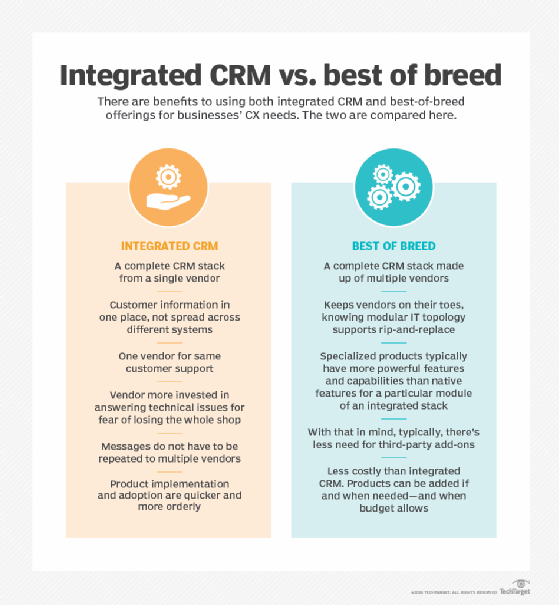
ltstudiooo - Fotolia
Why use third-party marketing automation instead of native CRM tools?
Though many CRM platforms offer native marketing automation tools, many organizations find it beneficial to use a third-party application, such as Eloqua or Marketo.
Marketing automation software is becoming a necessity in the enterprise. The automation aspect, which affects not only efficiency but also effectiveness in marketing processes, is reshaping the very idea of marketing -- opening up new perspectives in how to communicate with customers and understand their needs.
Many businesses view marketing automation as a customer relationship management tool, and it is in many ways. Like CRM, it strives to improve communication with the customer, produce data that can drive processes and foster insights, and coordinate processes across systems.
Still, they're not the same, though the overlaps are considerable. CRM is for management of all aspects of enterprise interaction with customers, not just marketing. But because of the overlaps, many CRM packages now include marketing automation modules, ensuring that those processes are, almost by default, cleanly aligned with CRM processes.
Why, then, buy a separate marketing automation toolkit if it is included in an already-deployed CRM suite? There are several good reasons.
Corporate culture. Within the business, does sales drive marketing, or vice versa? In the former case, it is common to cultivate and actively mine lead sources. This diversity is multichannel and complicated and makes for complex lead scoring -- a central feature of marketing automation. This could be an issue if the automation is to do that job well; redundant interfaces, dual maintenance and other factors could make an integrated CRM and marketing automation system the best bet. However, if marketing drives sales, it may be best to centralize lead inputs in an independent marketing automation deployment and feed the results to sales.

Limitations. Though many CRM packages feature marketing automation functionality, it is often too standard and not sufficiently customizable. Given the increasing importance of automation and the possibilities for customizing it -- incorporating machine learning, for instance -- more flexibility is often better, and best-of-breed is almost invariably more flexible than canned modules.
Multiple lines of business. High-end enterprise operations often require that different business units share software platforms as a matter of practicality and cost control, and this can often lead to compromise and concession when it comes to functionality. It often ends up being more beneficial to incur the extra expense of maintaining separate CRM and marketing automation deployments and custom integrations between them -- in exchange for the flexibility and versatility the arrangement will provide across the business units.





